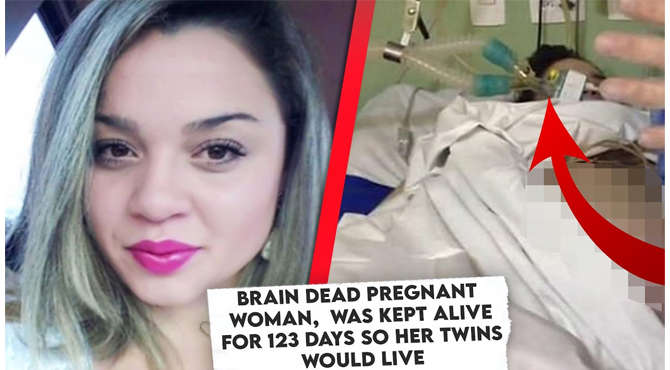Three separate cases of brain-dead mothers giving birth to healthy babies have captured international attention, pushing the boundaries of medical science and ethical dilemmas. Here’s a closer look at these unprecedented occurrences:
Case 1: Sandra Pedro’s Courageous Decision in Portugal
Sandra Pedro, a 37-year-old resident of Brigadis, Portugal, faced a life-threatening decision when she learned she was expecting her second child. Doctors warned her of the significant risks due to her medical history, including pneumonia, heart disease, and a previous coma. Despite the danger, Sandra made the brave choice to keep the baby.
In February, tragedy struck as Sandra suffered a brain hemorrhage, leaving her on the brink of death. Remarkably, an ultrasound revealed that her unborn child’s vital signs were strong, even as Sandra’s own life hung in the balance. Following consultation with the hospital’s ethics committee, Sandra’s family, and the child’s father, it was decided to continue the pregnancy to secure the baby’s survival.
On the 32nd week of her pregnancy, 170 days after her death, Sandra gave birth to a healthy baby boy named Lorenzo Sylvana. This unprecedented case has left medical professionals astounded and moved the world with its demonstration of a mother’s unwavering love.
Case 2: Katarina Securia’s Journey in Portugal
Katarina Securia, a former athlete in Portugal, faced a similar ordeal. After suffering a severe asthma attack while 19 weeks pregnant, she was placed in an induced coma. Tragically, Katarina was declared brain dead on January 1st, but a ventilator kept her breathing for 56 days to give her baby a chance at life.
Salvador, a newborn boy, was delivered via a planned C-section at 26 weeks, weighing just 3.75 pounds. The decision to proceed with the birth was made based on Portugal’s presumed consent organ donation law and the wishes of Katarina’s family and the baby’s father. The baby’s survival was of paramount importance to all involved.
These cases of brain-dead mothers giving birth to healthy babies in Portugal have pushed the boundaries of medical science and ethics, showcasing the incredible possibilities and complexities in such situations.
Case 3: Franklin De Silva Zampoli Batti’s Journey in Brazil
Meanwhile, in Brazil, another remarkable story unfolded. Franklin De Silva Zampoli Batti, aged 21 and pregnant, suffered a stroke and was declared brain dead. Doctors made the extraordinary decision to save the embryos when they discovered the unborn children’s hearts were still beating within her womb.
Franklin was kept alive on a ventilator, and the medical team at Nossa Senhora da Rosche Hospital in Campinas, Brazil, worked tirelessly to ensure the babies’ growth and development. Against all odds, she gave birth to twins, Anniversa and Assoth, with a girl and a boy weighing 1.4 and 1.3 kilograms, respectively. These twins are now receiving the care they need to thrive.
These cases from Portugal and Brazil underscore the incredible medical advances and ethical considerations that come into play when the desire to save a child’s life collides with the tragedy of a brain-dead mother. These stories serve as a testament to the resilience of the human spirit and the remarkable feats that modern medicine can achieve.










